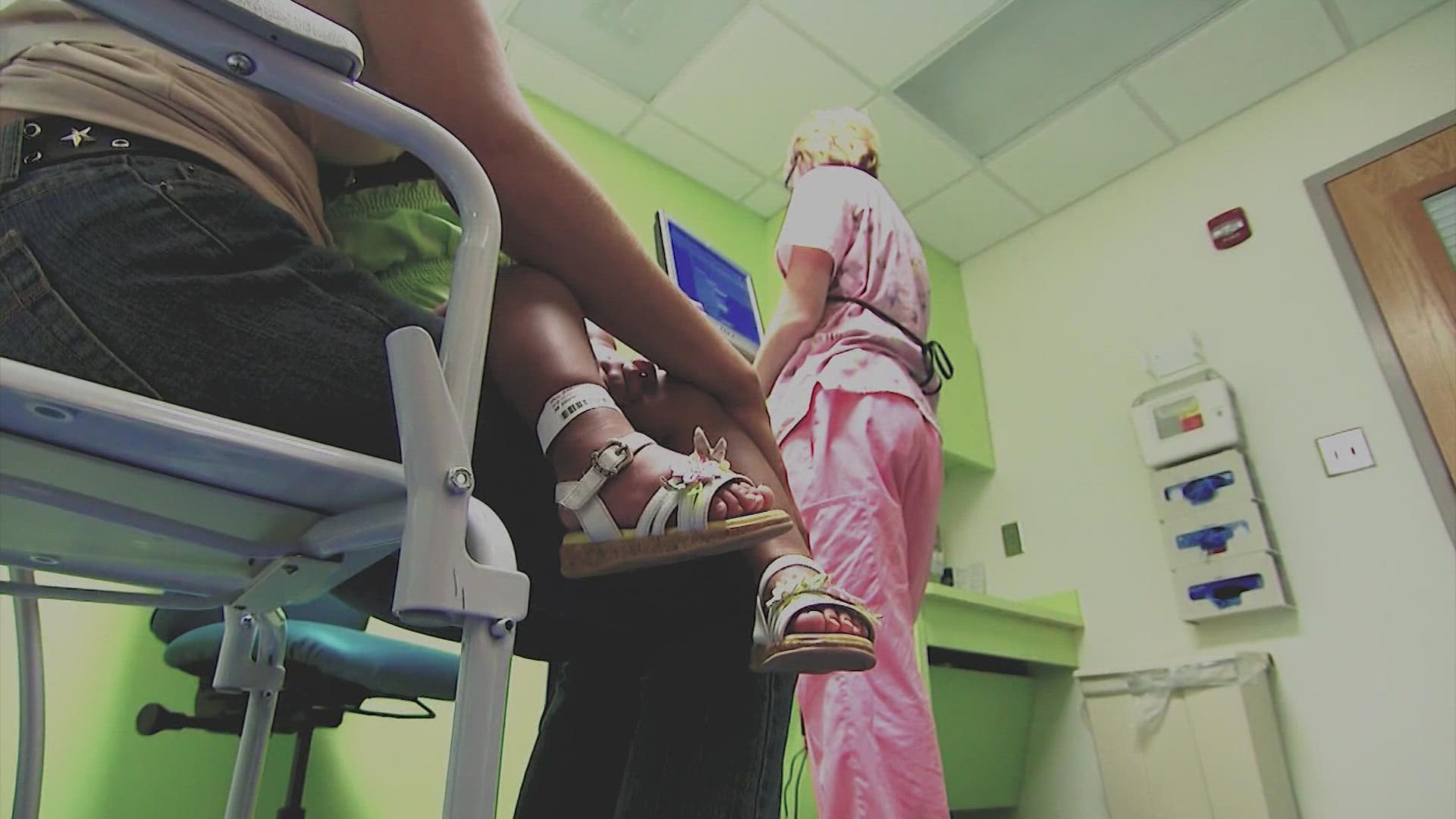SEATTLE — As parents plan for holiday travel and gatherings, Washington state pediatric hospitals are navigating capacity and staffing issues that are putting significant strain on providers.
Facilities around the state are operating at 100% capacity on a regular basis, with some, like Seattle Children's, facing 300% capacity in the evenings.
Respiratory syncytial virus (RSV) has put significant additional strain on crowding of pediatric beds in hospitals around the country. Hospitals are encouraging families to do what they can to prevent the spread of the virus, along with educating parents on when a child should go to the hospital. Most cases of RSV do not require hospitalization, but if an infant is having trouble breathing or is dehydrated, parents should seek care.
Makaila Battles of Enumclaw hopes to raise awareness among other parents about the seriousness of the illness and the importance of preventing spread where possible. She said her then 3-week-old son Baker was diagnosed with RSV last December. She said the symptoms came on quickly and aggressively, with him feeling fine one day and waking up the next very sick.
"We went to Mary Bridge and they were amazing," Battles said. "I was a wreck because my husband and daughter had RSV really bad because it affects adults, too, so he couldn't come with me. It was just me and my son and they made sure I had everything I needed, and they were just so caring."
This year, Mary Bridge Children's Hospital in Tacoma is reporting its highest number of admittances for RSV in its history, while roughly half of all admitted to Providence Sacred Heart Hospital recently have been for RSV.
"We now see patients in hallways, in and outside the ED (emergency department), storeroom, in several lobbies to try and make up for this volume," said Dr. Tony Woodward, the medical director of Emergency Medicine for Seattle Children's. "We need to expand even further because we are not meeting the need currently."
RSV is an annual illness, but arrived earlier than usual this year, according to Woodward.
Battles said she and her husband were surprised to learn how easily RSV spread, and encourage parents not to be afraid to chat with loved ones about safe visiting with infants, especially during the holiday season.
"Don't feel mean for telling people [you'd rather they don't touch or kiss the baby, or need to] wash their hands- as a parent it's your right," Battles said. "We learned it lives on a surface too, so you want to sanitize surfaces, do hand sanitizer and no kissing, those would be my rules [for little ones]."
In Battles' case, she learned that the closest pediatric unit was an hour away only after her son got sick. She encourages parents across Washington to research who they'd call and where they go if a child's sickness ever got severe. RSV does not always require hospitalization, but for families who are dealing with serious illness, she wants them to know that her son fully recovered and doctors will give the best care they can.
"Being in the hospital was really hard but you'll get past it, just love on your baby, you did nothing wrong," Battles said. "Know your access, what numbers to call, and what hospital to go to."
An earlier surge in RSV is just one of several factors putting strain on hospitals. Compounding the issue for Washington state is a lack of available pediatric hospital beds compared to the rest of the country.
"We only have about 500 pediatric beds in Washington state, and of those, only 122 are pediatric ICU beds, so that is a very small percentage of our pediatric population, which is approximately 1.5 million," said Dr. Mary Alice King, the medical director for Harborview Medical Center's pediatric ICU.
Another part of the overcapacity concerns is the rise in needs for pediatric behavioral health care. Due to availability, some behavioral health pediatric patients are forced to wait hours - sometimes days - before they can be transferred from emergency departments.
"We have one behavioral health child who has been holding in the emergency department for 347 days as of today," said Ben Whitworth, chief operating officer for Mary Bridge Children's Hospital and Network.
King called for "aggressive, widespread flu shot campaigns for kids” in order to help combat the rise in flu hospital visits.
All those on the WSHA panel emphasized that parents shouldn't be hesitant to bring their children into the hospital if they are really sick, but to try and consult primary care physicians or utilize telemedicine to determine the next best steps for care.
Woodward said medical facilities typically deal with lighter staffing around the holidays, and are doing everything they can to prepare as more and more patients arrive.

